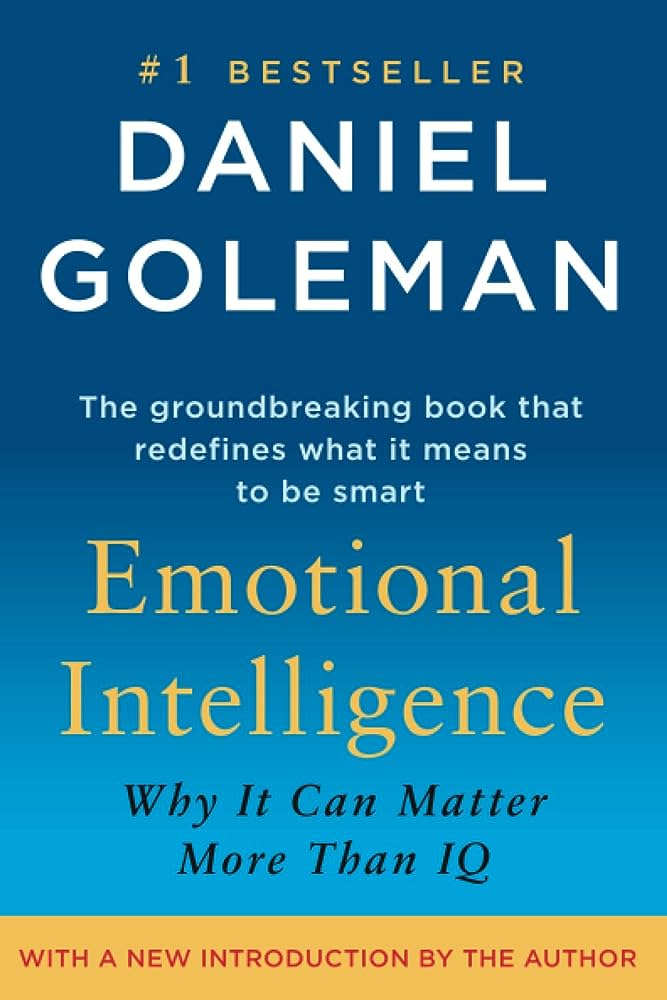You need both - soft and hard skills.
It is nice when someone is a technical ace. But when he does not listen, you will be annoyed. Likewise, when you have empathy but no idea what you want to achieve.
“Employees are likely to be most inspired by leaders who are simultaneously empathetic and driven toward building a successful business.” - Tony Robbins
You master hard skills thanks to studying and training at work. But emotional intelligence is not that obvious. How do you learn to channel and interpret emotions to communicate effectively with other people?
Everyone has a different level of emotional intelligence. (Yes! You, too, have it :-) Some more and some a bit less. Become aware of how to use it. Leverage it in your communication.
Contents:
Emotional intelligence definition
A brief history of emotional intelligence
Four components of emotional intelligence
Self-awareness
Self-management
Social awareness
Social management (relationships management)
Test your emotional intelligence
How to improve emotional intelligence
TL;DR
More resources
1. Emotional intelligence definition
Emotional intelligence is:
The capacity to be aware of, control, and express one's emotions and to handle interpersonal relationships judiciously and empathetically. - Oxford languages
The ability to understand, use, and manage your own emotions in positive ways to relieve stress, communicate effectively, empathize with others, overcome challenges, and defuse conflict. - helpguide.org
The ability to perceive, interpret, demonstrate, control, evaluate, and use emotions to communicate with and relate to others effectively and constructively. - verywellmind.com
The ability to manage both your own emotions and understand the emotions of people around you. - mhanational.org
The science of managing self and connecting with others. - www.socialigence.net
Emotional intelligence is your capacity or ability to work with your emotions, as well as with the emotions of other people.
The positive news is that you can expand this capacity. In other words, improve your ability to handle your emotions and use empathy for communicating better with others.
Hurray! You can learn and improve emotional intelligence. No excuses. You “don’t have it”. You do, but you may need to put some effort into building your self-awareness and social awareness.
2. A brief history of emotional intelligence
Since 1909, scientists talked about social and emotional intelligence. In 1983, Howard Gardner talked about multiple intelligences in his book Frames of Mind.
But 1990 marked a turning point for "emotional intelligence" when Yale professor Peter Salovey and University of New Hampshire professor John Mayer published their seminal piece "Emotional Intelligence" in the magazine "Imagination, Cognition, and Personality."
They focused on abilities, not traits. They explored four branches - perception, identification, appraisal, and expression of emotions.
Soon after, a psychologist, Daniel Goleman, used their work and published Emotional Intelligence: Why it Can Matter More than IQ.
As you would have guessed, this book became an international bestseller and caught the eye of the management field. He describes a framework with four components:
Self-Awareness;
Self-Management;
Social-Awareness;
Relationship Management
Emotional intelligence makes you understand and manage yourself. It helps you connect with others to build and maintain relationships.
3. Explore four components of emotional intelligence
Let’s explore further the four components of emotional intelligence, as suggested by Daniel Goleman. You may find what personal and social competencies you need to work on.
a. Self-awareness
I want you to stop now and focus your attention on yourself. How do you feel? Who you are? What do you want?
Okay, enough of meditation-like statements. Self-awareness is your ability to recognize and understand characteristics that define your unique personality, including your actions, beliefs, emotions, values, and ideas.
Self-awareness is that you know yourself. You know how you will react, why you do that, and how it makes you feel. Children become aware of themselves around 18 months.
Self-awareness is your starting point when you want to improve your leadership skills, communication, relationships, knowledge, habits, etc. It is not something you would focus on all the time and think about each day. But it plays an important role in your life.
You can dive it into two:
Public self-awareness
How do you appear to others?
Do you try to fit into social norms and adjust how you behave?
Do you enjoy being evaluated by others? At work? In a group of friends?
Private self-awareness
Keep reading with a 7-day free trial
Subscribe to leadink to keep reading this post and get 7 days of free access to the full post archives.






